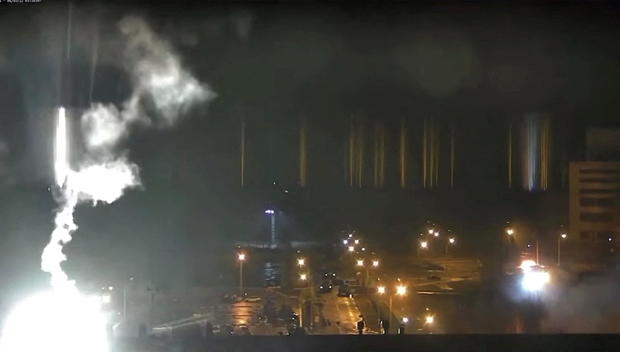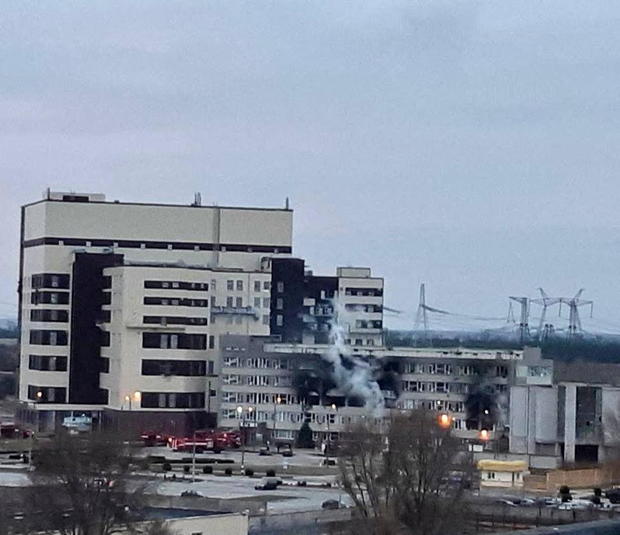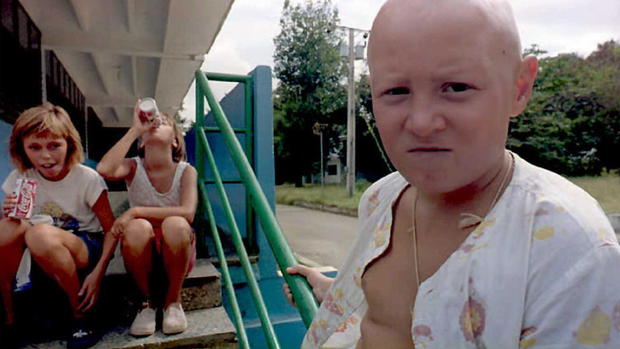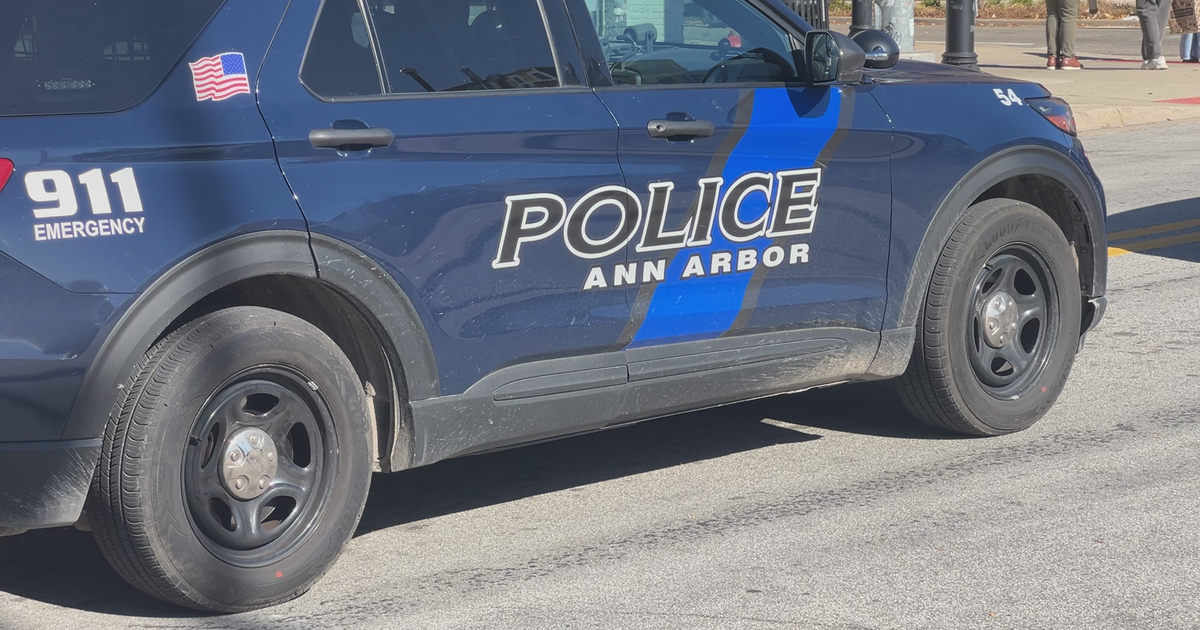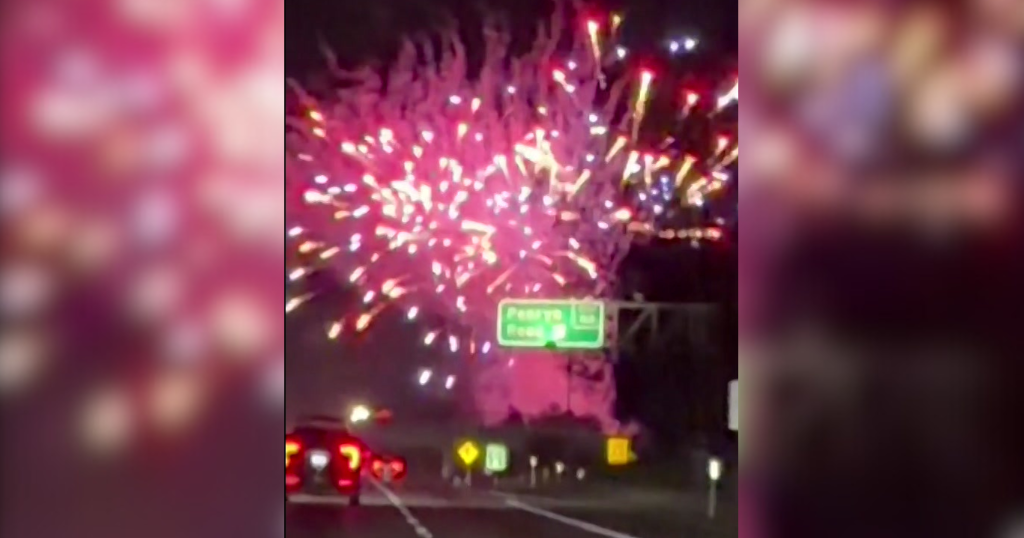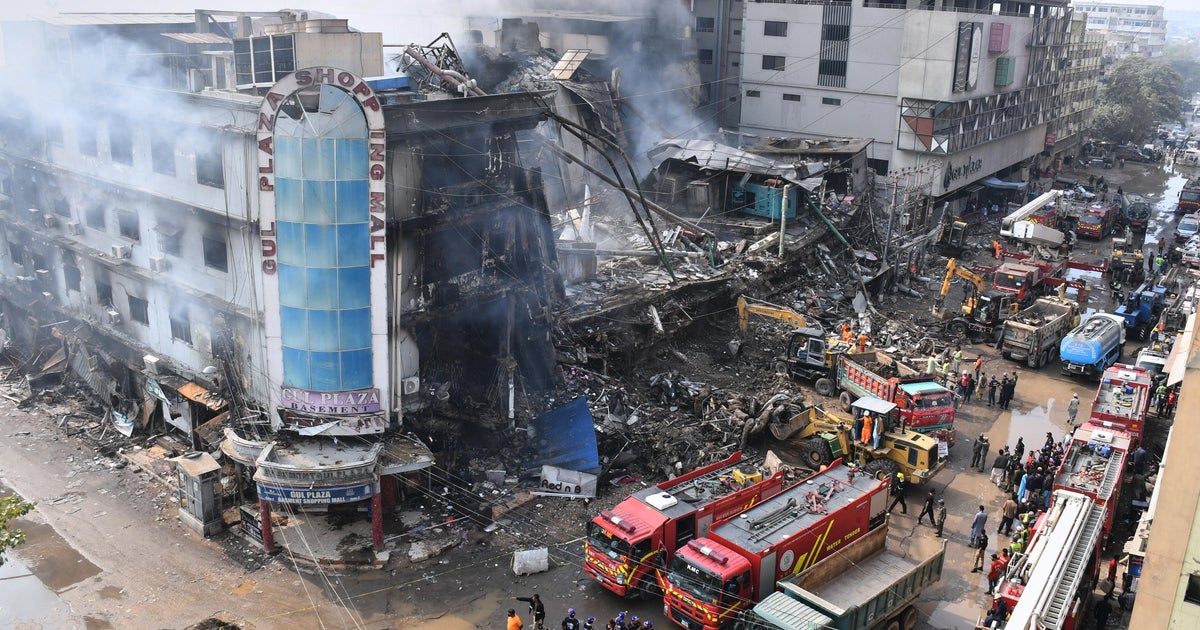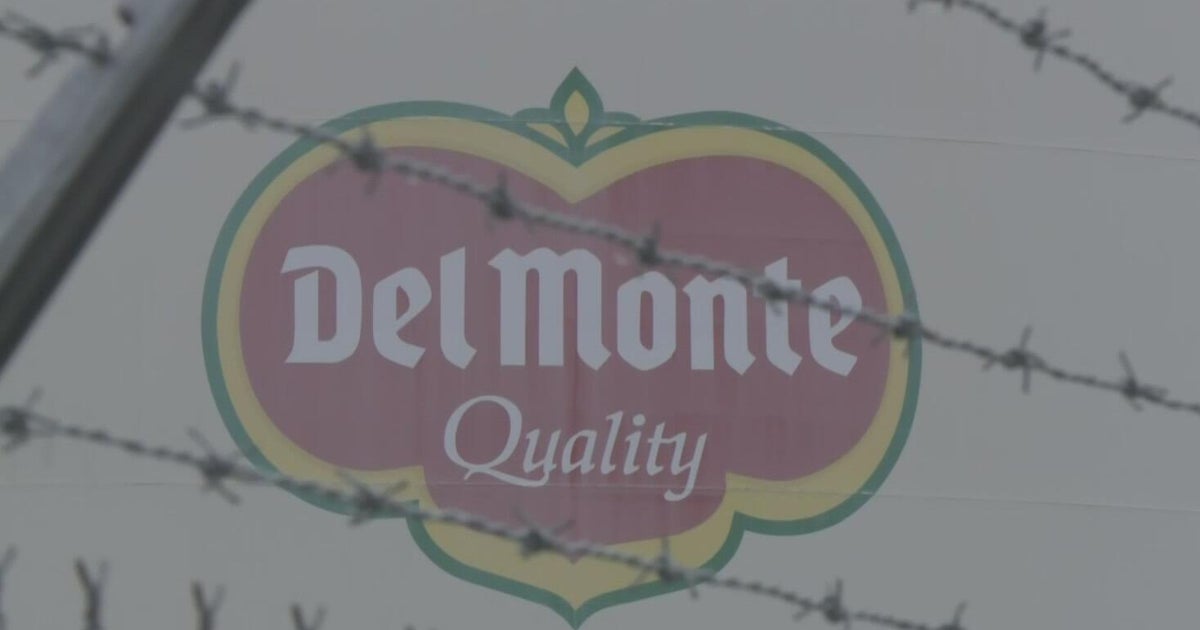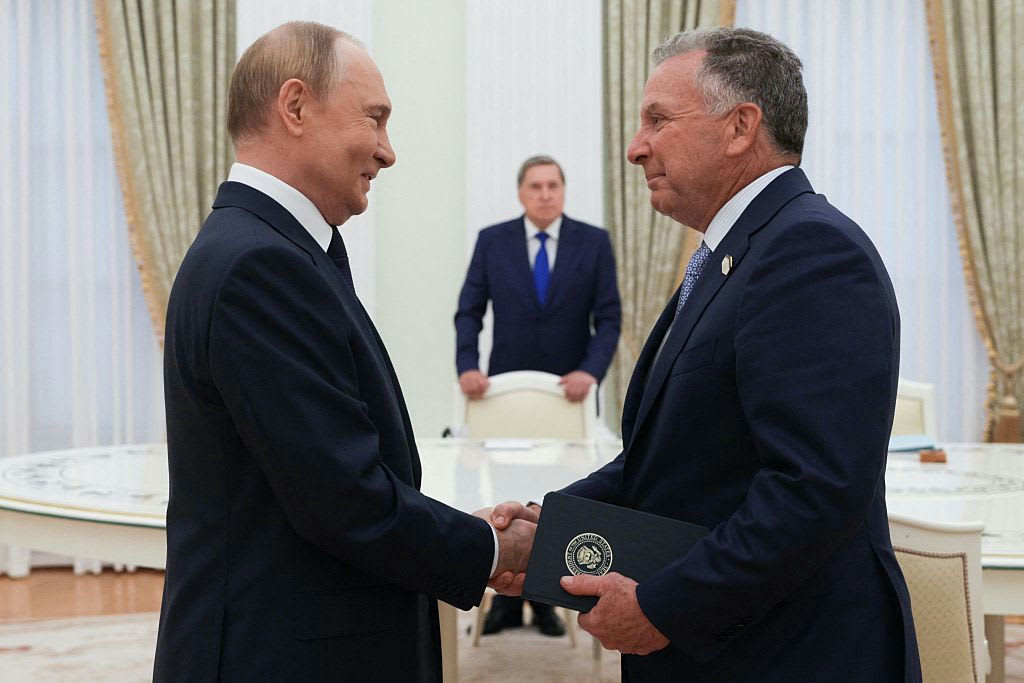U.S. calls Russian attack on Ukraine nuclear power plant a "war crime"
Europe's largest nuclear power plant was attacked Friday and taken over by Russian forces that invaded Ukraine, sparking Western horror at the threat of Moscow's war causing another Chernobyl and contaminating all of Europe.
The U.S. Embassy in Kyiv called the attack a "war crime," tweeting that (Russian President Vladimir) Putin's shelling of the plant "takes his reign of terror one step further."
Blasts lit up the night sky as the Zaporizhzhia nuclear power plant, about 400 miles southeast of Kyiv, came under shell fire.
Ukrainian firefighters said they were prevented from accessing the site initially, before the attack was paused and they were able to douse a blaze at a training facility on the site.
The six reactors at Zaporizhzhia, which can power enough energy for four million homes, were apparently undamaged and international monitors reported no spike in radiation.
But the attack was slammed in Western capitals as utterly irresponsible.
"We survived a night that could have stopped the story, the history of Ukraine, the history of Europe," Ukrainian President Volodymr Zelensky said.
An explosion at Zaporizhzhia would have equalled "six Chernobyls," he said, referring to the plant in Ukraine that was the site of the world's worst nuclear disaster in 1986.
"Russian tank commanders knew what they were firing at," Zelensky alleged, adding: "The terrorist state now resorted to nuclear terror."
After phoning Zelensky during the night, British Prime Minister Boris Johnson demanded an urgent meeting of the U.N. Security Council.
He accused Putin of "reckless actions" that "could now directly threaten the safety of all of Europe" and pressed anew for a ceasefire.
Putin, however, has been unrepentant about an offensive that has cast Russia into the economic, sporting and cultural equivalent of exile to Siberia.
He said Thursday that the invasion was going "strictly according to schedule, according to plan" in its aims of driving out the "neo-Nazis" in Kyiv led by Zelensky — who is Jewish.
The Kremlin denied its forces had shelled the plant, instead blaming the fire on Ukrainian "saboteurs" and calling it a "monstrous provocation," according to the Reuters news service.
But Western leaders added their voices to Johnson's, strongly condemning the shelling.
Norwegian Prime Minister Jonas Gahr Store described the shelling as "madness" and Italian Prime Minister Mario Draghi called it "heinous" and said it was "an attack on everyone's security."
"This just demonstrates the recklessness of this war and the importance of ending it and the importance of Russia withdrawing all its troops and engaging good faith in diplomatic efforts," NATO chief Jens Stoltenberg said
The head of the U.N. nuclear watchdog offered Friday to travel to Chernobyl to negotiate with Ukraine and Russia and ensure the security of Ukraine's nuclear sites.
"I have indicated to both the Russian Federation and Ukraine my availability ... to travel to Chernobyl as soon as possible," Rafael Grossi, director general of the International Atomic Energy Agency, told reporters.
"Both sides are considering" the possibility, he added.
Russia last week seized the site of the 1986 Chernobyl disaster, which left hundreds dead and spread radioactive contamination west across Europe.
Grossi said the trip would aim to discuss with both sides a "framework" to safeguard the security and functioning of Ukraine's nuclear sites.
